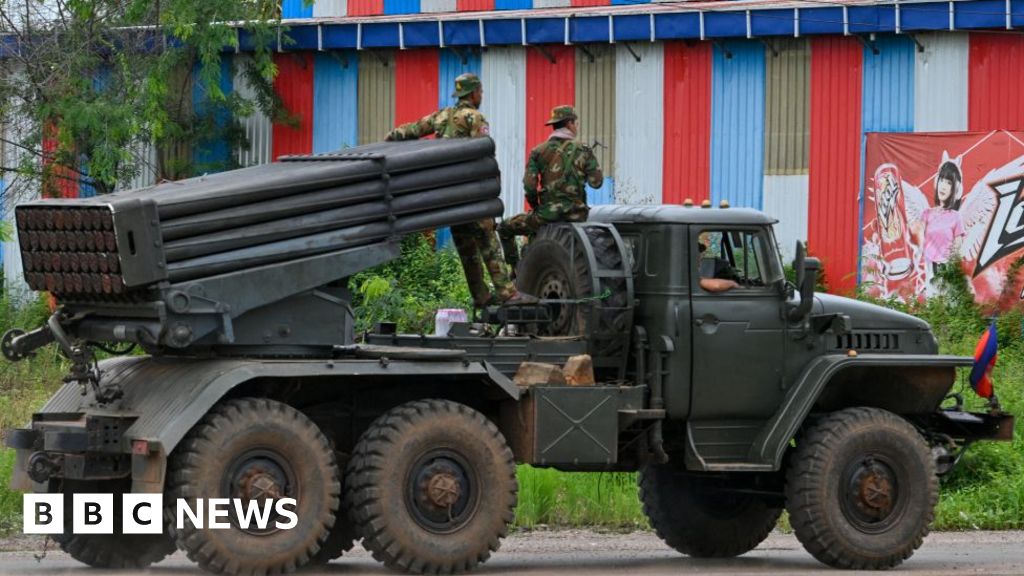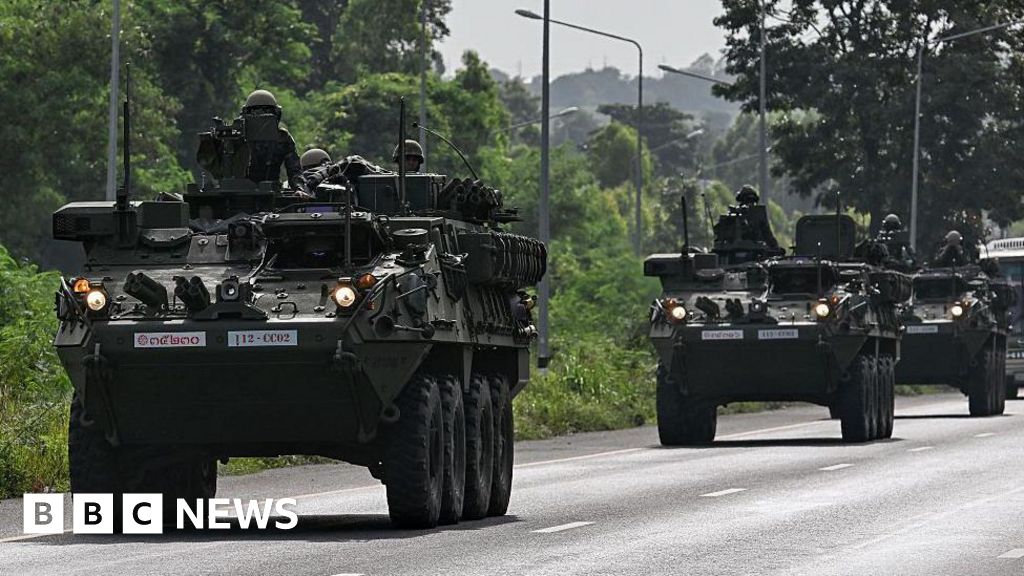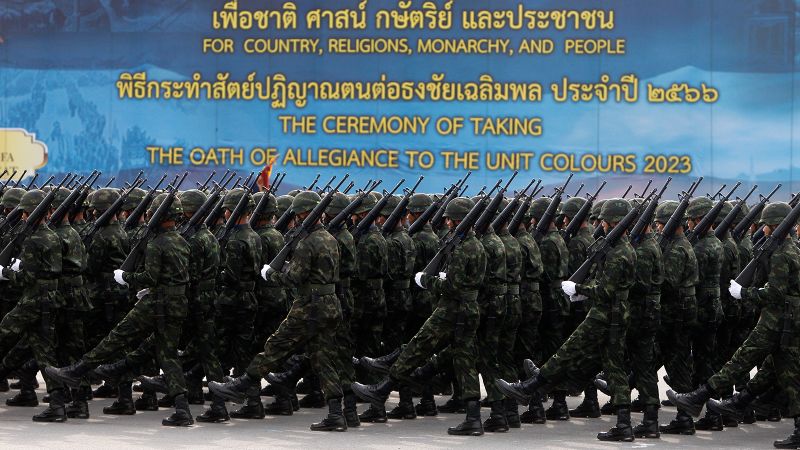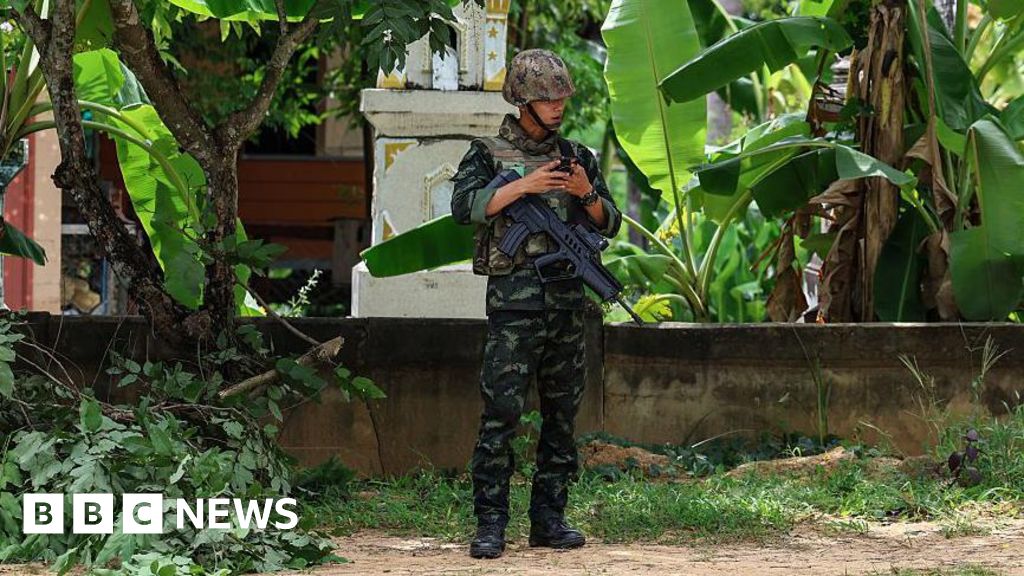Thailand and Cambodia Agree to Ceasefire, Facilitated by ASEAN and US Pressure

Introduction
Thailand and Cambodia have agreed to a ceasefire following a meeting in Malaysia. The meeting was held in response to direct pressure from US President Donald Trump. The two countries have been engaged in a long-standing conflict over their shared border, which has resulted in numerous clashes and casualties. This recent development is a positive step towards achieving peace and stability in the region.
Key Details
The conflict between Thailand and Cambodia dates back to the 16th century, and has been a major source of tension between the two countries. The disputed area is rich in natural resources and both sides have claimed ownership of it. The Malaysian meeting was facilitated by the Association of Southeast Asian Nations (ASEAN) and was seen as a crucial step in resolving the conflict. The leaders of both countries have expressed their commitment to finding a peaceful solution and have agreed to continue negotiations.
Impact
The ceasefire agreement between Thailand and Cambodia has significant implications for the region. It has the potential to not only bring an end to the ongoing conflict, but also strengthen the relationship between the two countries. This could also have a positive impact on trade and tourism in the region, as well as promoting peace and stability in the area. The involvement of President Trump and ASEAN has also highlighted the importance of international cooperation in resolving conflicts and promoting peace.
About the People Mentioned
Donald Trump
Donald John Trump, born June 14, 1946, in Queens, New York, is an American businessman, media personality, and politician. He graduated from the University of Pennsylvania’s Wharton School in 1968 with a degree in economics. In 1971, he took over his family’s real estate business, renaming it the Trump Organization, through which he expanded into building and managing skyscrapers, hotels, casinos, and golf courses. Trump gained widespread fame as the host of the reality TV show *The Apprentice* from 2004 to 2015, which helped establish his public persona as a successful entrepreneur. Trump entered politics as a Republican and was elected the 45th president of the United States, serving from 2017 to 2021. His presidency was marked by significant policy actions including tax cuts, deregulation, the appointment of three Supreme Court justices, renegotiation of trade agreements (notably replacing NAFTA with the USMCA), and a focus on immigration control including border wall expansion. He withdrew the U.S. from international agreements such as the Paris Climate Accord and the Iran nuclear deal, and engaged in a trade war with China. His administration’s response to the COVID-19 pandemic was criticized for downplaying the virus’s severity. Trump was impeached twice by the House of Representatives—first in 2019 for abuse of power and obstruction, and again in 2021 for incitement of insurrection—but was acquitted by the Senate both times. After losing the 2020 election to Joe Biden, Trump challenged the results, culminating in the January 6, 2021, Capitol riot. He remains a central figure in American politics, having won the 2024 presidential election and returned as the 47th president in 2025, continuing to promote policies aimed at economic growth, border security, and military strength[1][2][3][4].
About the Organizations Mentioned
Association of Southeast Asian Nations (ASEAN)
## Overview The **Association of Southeast Asian Nations (ASEAN)** is a regional intergovernmental organization comprising ten Southeast Asian countries: Brunei, Cambodia, Indonesia, Laos, Malaysia, Myanmar, the Philippines, Singapore, Thailand, and Vietnam[2][4]. Established on August 8, 1967, by Indonesia, Malaysia, the Philippines, Singapore, and Thailand, ASEAN was founded during the Cold War to foster regional stability and promote economic growth[4][7]. Over time, membership expanded to include the current ten nations, with Timor-Leste on track to become the 11th member[7]. The ASEAN Secretariat is headquartered in Jakarta, Indonesia[7]. ## Mission and Functions ASEAN’s primary goals are to accelerate economic growth, social progress, and cultural development, while promoting regional peace and stability through adherence to the United Nations Charter and the principle of non-interference in internal affairs—a hallmark of the “ASEAN Way”[1][7]. The organization operates on consensus-based decision-making, emphasizing respect for sovereignty and peaceful dispute resolution[7]. Economically, ASEAN has been a driving force behind Asian integration, reducing tariffs through the ASEAN Free Trade Area (AFTA) and facilitating visa-free travel among member states[6]. The bloc played a pivotal role in negotiating the Regional Comprehensive Economic Partnership (RCEP), the world’s largest free trade agreement[2]. With a combined population of over 670 million and a GDP exceeding $3.9 trillion in 2025, ASEAN is one of the world’s largest markets and labor forces, poised to become the fourth-largest economy by 2050[2][4]. ## Key Achievements - **Economic Integration:** ASEAN has significantly lowered trade barriers, boosted intra-regional commerce, and attracted foreign investment, making it a hub for global supply chains, especially in manufacturing and technology[1][2]. - **Diplomatic Influence:** The bloc host













